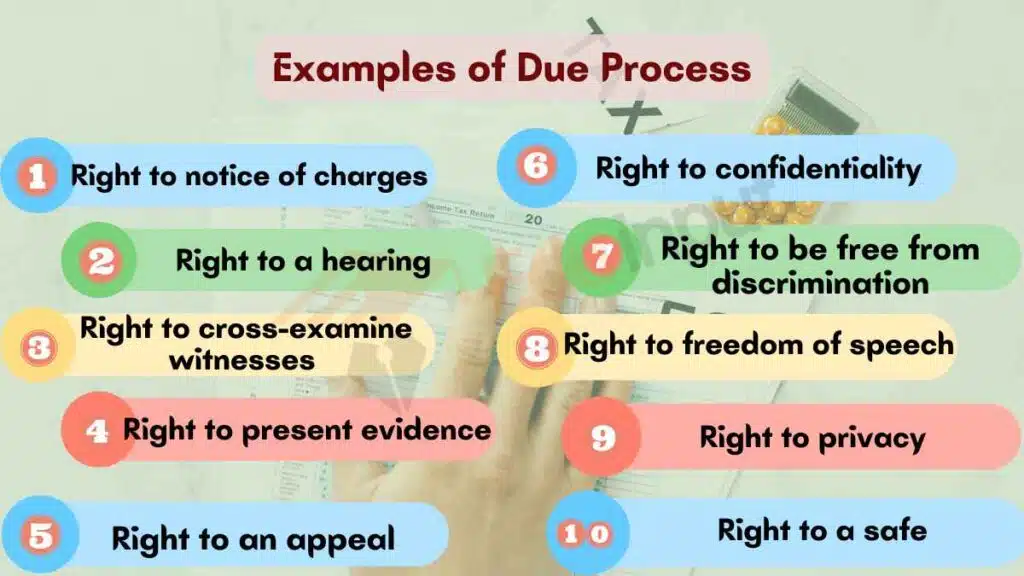10 Examples of Due Process for Students
Due process is the right of all people to be treated fairly under the law. This includes students, who have a number of due process rights that protect them from arbitrary or unfair treatment by school officials.
In this blog post we will talk about the examples of due process for students.

Examples of Due Process
Here are 10 examples of due process for students.
1: Right to notice of charges
Students must be informed of the specific charges against them before any disciplinary action can be taken.
This notice must be in writing and must clearly explain the allegations.
2: Right to a hearing
Students have the right to a hearing before a neutral decision-maker before any disciplinary action can be taken.
This hearing must be fair and impartial, and the student must be given the opportunity to present their side of the story and to call witnesses.
3: Right to cross-examine witnesses
Students have the right to cross-examine witnesses who are testifying against them at a disciplinary hearing.
This means that they can ask questions of the witnesses and challenge their testimony.
4: Right to present evidence
Students have the right to present evidence in their own defense at a disciplinary hearing.
This evidence can include witness testimony, documents, and other relevant materials.
5: Right to an appeal
Students have the right to appeal a disciplinary decision if they believe that it was unfair.
The appeal process may vary depending on the school district, but it typically involves a review of the decision by a higher-level administrator or school board.
6: Right to confidentiality
Students’ disciplinary records are confidential and should not be shared with anyone outside of the school district without the student’s consent.
7: Right to be free from discrimination
Students cannot be punished for their race, religion, gender, sexual orientation, or disability.
8: Right to freedom of speech
Students have the right to express their opinions freely, even if those opinions are unpopular or controversial.
9: Right to privacy
Students have the right to privacy, including the right to their personal belongings and the right to be free from unreasonable searches and seizures.
10: Right to a safe and supportive learning environment
Students have the right to learn in a safe and supportive environment free from bullying, harassment, and discrimination.
These are just a few examples of the due process rights that students have. If you believe that your child’s due process rights have been violated, you should contact the school district immediately.



Leave a Reply